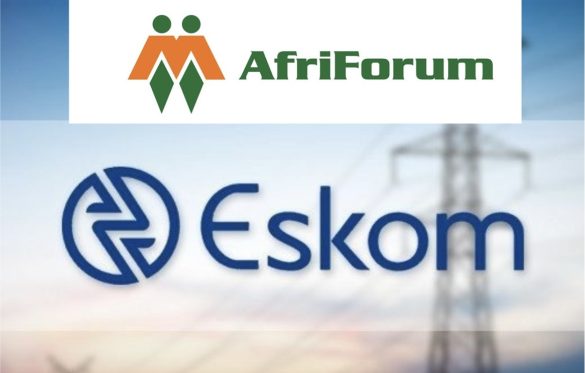KEY POINTS
- AfriForum secures a temporary halt on Eskom’s R54 billion settlement with Nersa.
- The dispute stems from an alleged lack of public engagement and opaque decision-making.
- The deal allows Eskom to raise power tariffs by 8.76% and 8.83% in 2026 and 2027.
The long-running tension between Eskom, South Africa’s state-owned power utility, and Nersa, the National Energy Regulator, has escalated after the civil rights group AfriForum succeeded in temporarily halting a R54 billion settlement agreement between the two bodies.
The contested deal was intended to resolve discrepancies arising from what Nersa described as an error in its revenue clawback calculations, which had short-changed Eskom in previous tariff adjustments. The agreement would have allowed Eskom to recover the shortfall by raising electricity prices to 8.76 per cent in 2026 and 8.83 per cent in 2027, significantly higher than originally planned.
However, AfriForum argues that the decision was made behind closed doors and lacked the necessary public consultation required for such a major revision.
Civil Rights Group Alleges “Delusion of Transparency”
AfriForum’s Morne Mostert told SABC News that the organisation was deeply troubled by the lack of transparency surrounding the settlement.
“The fact that they did not tell anyone, and it’s only the media that found out about the previous settlements that were made, shows there’s a delusion of transparency,” Mostert said.
He added that AfriForum was now intervening legally to uncover the “real reasons” behind the sudden shift in the agreed figures, questioning whether the public and electricity consumers were being unfairly burdened to cover institutional mismanagement.
Eskom, for its part, maintains that the settlement did not legally require public engagement and insists the adjustment was administrative rather than political. The company says the recalculation merely corrects past under-recoveries and helps stabilise its precarious balance sheet amid soaring debt and maintenance costs.
The dispute adds another layer of uncertainty to South Africa’s already fragile power sector, which has faced years of load-shedding, underinvestment and regulatory wrangling.
Analysts note that while Eskom urgently needs financial relief to sustain operations and fund grid repairs, the lack of transparency and consultation risks deepening public mistrust.
“This episode speaks to a wider governance crisis in South Africa’s energy sector,” said one Johannesburg-based energy analyst. “Regulatory clarity and public trust are crucial if the country wants to attract investment and stabilise its electricity supply.”
For now, the settlement remains suspended pending further review, but the confrontation has once again exposed the fault lines between South Africa’s energy bureaucracy and its civil society watchdogs.



